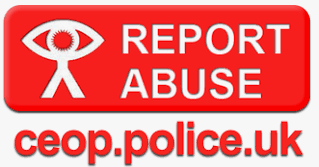Online Safety
Are you worried about online sexual abuse or the way someone has been communicating with you online?
Make a report to one of CEOP's Child Protection Advisors by clicking on the 'Report Abuse' button.
At Tattershall Primary School, we understand that online safety is an essential element of safeguarding children and adults in the digital world, when using technology such as tablets, computers, mobile phones or games consoles.
We identify that the internet and information communication technologies are an important, enjoyable and beneficial part of everyday life. There is a wealth of information and accessibility at our fingertips now and never has communication across the globe been so easy. In order for children to be able to use this technology safely, they must be supported to be able to develop strategies to manage and respond to risk so they can be empowered to build resilience online and most importantly keep themselves and others safe.
Safety online can be categorised into four main areas:
Content: what the children are being exposed to online
Conduct: personal online behaviour
Contact: how they communicate, and who with, online
Commerce: what they could be drawn into financially
Below are some simple guidelines to help children stay safe online:
- Get involved with your children online - play the games with them, talk to them about what they are doing - this is the best way to keep informed
- Ensure they understand that their behaviour online should be just as safe a responsible as it is in the real world, including the things they say and do
- Ask permission before using the Internet and discuss which websites they are using
- Only use websites and apps you have chosen together
- Only communicate with people they know in the real world
- Make it part of your expectations that you are able to look at their personal devices when you wish to in order to help keep them safe
- Ask a parent / carer to open any messages sent by someone they don’t know
- Never use their real name when using games or websites on the Internet (create a nick name)
- Never give out personal information about themselves, friends or family online including home address, phone number or mobile number, school
- Never arrange to meet someone they have ‘met’ on the Internet
- Never tell someone they don’t know, where they go to school or post any pictures of themselves in school uniform
- Only use a webcam with people they know in the real world in the presence of their parents / carers
- Tell you immediately if they see anything they are unhappy with (turn off or lock screen so that their parent / carer can take over and report anything upsetting or inappropriate)
- Have a technology time cap each day and a technology free hour before bedtime (try to keep technology out of bedrooms during the night so your children get a good night's sleep free from distraction)
For accurate and up to date information, signposting to other agencies and reporting processes you can look at the websites below (click on image to open the website in a new window):








